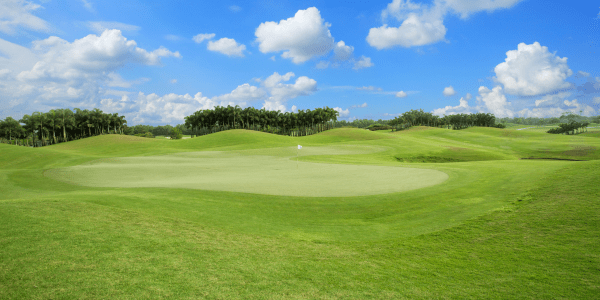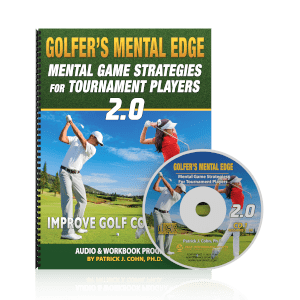
The Importance of Smart Preparation
What helped you get to where you are may not be enough to get you to where you want to go.
Many golfers think the actions and preparation that helped them climb to a higher level will be sufficient to help them succeed at that level.
In most instances, that is not the case.
As you improve your game and ascend upwards, your competition gets tougher. You need to be ready mentally and physically to meet the demands of stronger competition.
Every step forward, needs to be met with increased preparation and focus.
“Expecting” success to continue when you advance to the next level is often met with frustration and a dip in performance.
To simplify this matter, the level of practice that helped you succeed at the age of eight will not be enough to help you play your best golf at the age of twelve. The level of effort and preparation you put forth at the age of twelve will need to improve when you play high school golf.
Preparation consist of the physical and technical components of the game such as mechanics, physical conditioning, diet, recovery and injury management.
Better preparation also includes mental training such as: defining clearer goals, developing a sharper focus, managing emotions, building confidence, overcoming mistakes, visualizing success, handling pressure, dealing with adversity and a host of other aspects of your mental game.
Playing golf at the next level was more difficult than expected for Mina Harigae. Harigae is a 30-year-old professional golfer who plays the LPGA Tour.
Harigae experienced success at an early age winning the California Women’s Amateur Championship for four consecutive years from 2001 to 2005. At the age of 17, Harigae won the 2007 U.S. Women’s Amateur Public Links. In 2009, Harigae won three tournaments on the Futures Tour and was named Future Tour Rookie of the Year and Future Tour Player of the Year.
Also, in 2009, Harigae was the tour’s leading money winner, which earned her membership on the LPGA Tour for the 2010 season.
But there is quite a difference between amateur golf and playing at the professional level as Harigae was to soon find out.
HARIGAE: “The thing is, this is the best of the best and they come from everywhere. My rookie year on the LPGA I thought I was a good golfer. I was ready to go. Then all of the sudden, these golfers I’ve never heard of, all from different countries, they were dominating and it kind of threw me off a little bit. It was a little bit of a shocker.”
Harigae thought about retirement at one point. Now, Harigae is focused on better preparation in order to succeed at the professional level.
HARIGAE: “Even though 30 is on the older side on the LPGA. I changed my perspective a little bit. I’ve learned so much about myself and my game, about equipment and recovery, about nutritional things. I am really excited. I have a good plan in place.”
Better preparation doesn’t imply overhauling your mechanics or spending an excessive amount of hours playing practice rounds. Better preparation means smarter preparation.
Small improvements to your preparation can keep your golf game on an upward path.
How to Prepare Smarter:
Instead of overhauling your swing mechanics, work to improve the quality of your practice and sharpen your mental game.
Determine what mental aspects have held you back the most.
Do you go off the rails when you miss easy putts? Do you have difficulty playing with confidence when playing tougher competition? Do distractions easily throw off your game?
Master the mental game as you improve your practice habits. To practice smarter, apply the concept of practice specificity…
Don’t just beat balls and spend “time” on the practice range or green. Practice in a way that mimics what you do on the golf course–so your practice transfers to tournament play.
Related Golf Psychology Articles
- Do You Mentally Prepare for Tough Conditions?
- How to Prepare Mentally for a Golf Tournament
- How to Mentally Prepare For a Golf Shot
- Subscribe to The Golf Psychology Podcast on iTunes
- Subscribe to The Golf Psychology Podcast on Spotify
Golfer’s Mental Edge 2.0

Do you suffer from fragile self-confidence after missed hitting shots or making mistakes, playing with strict or high expectations that undermine confidence, or the inability to play freely and relaxed on the course?
Successful golfers have learned how to perform with ultimate confidence in competition, so we’ve developed The Golfer’s Mental Edge 2.0 Workbook and Audio program to help you do this!
The Golfer’s Mental Edge 2.0 program includes the top 11 mental training sessions I do with my personal students to help them boost their mental game and improve consistency on the course!